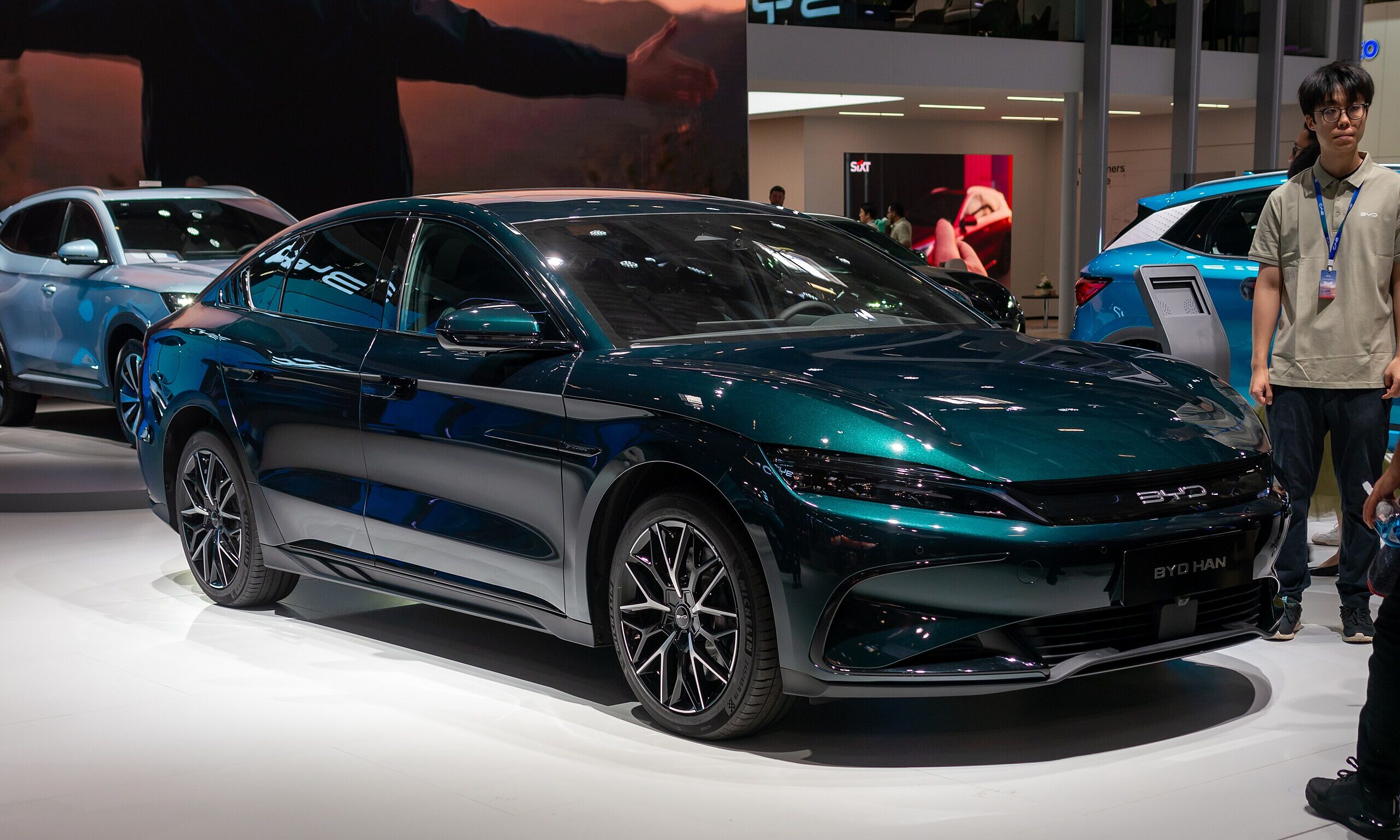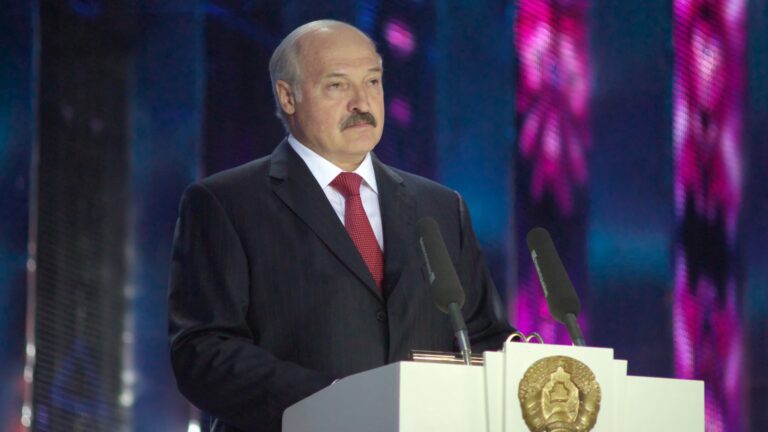EU Moves to Address the Chinese EV Subsidies, But More Needs to Be Done

Chinese electric vehicles present a mounting challenge to the European automotive industry. EU Commission President Ursula von der Leyen announced that the EU will initiate an anti-subsidy investigation, but imposing tariffs could lead to a trade war and will not work without also addressing the competitiveness of European producers.
This article is part of a series of articles authored by young, aspiring China scholars under the Future CHOICE initiative.
Over the past three years, China has managed to more than quadruple its exports of cars and consequently became their net exporter. The increase in exports is largely influenced by the surge in electric vehicle (EV) sales. In 2022, China’s exports of EVs grew by roughly 130 percent when compared to the previous year.
European Market as an Attractive Target
Last year, 28 percent of the EU’s battery EVs were imported from China. Europe is an attractive target for Chinese exports due to its low trade barriers and rising demand for EVs connected to the planned ban on selling combustion engine cars by 2035.
Most of the imported cars were manufactured by Western carmakers that relocated production to China. However, the share of Chinese brands in the European EV market is increasing, and Chinese companies are becoming major competitors for European and US carmakers. Chinese car manufacturing company BYD now rivals Tesla as the world’s biggest seller of EVs.
China’s strong export growth is partially caused by European and US carmakers moving their productions to China, which leads to less production in Europe. However, Beijing has invested heavily in the sector starting more than a decade ago and consequently gained an advantage in almost all aspects of the EV value chain. Today, Chinese companies dominate the supply chain of critical raw materials and control about two-thirds of the global battery market.
Chinese carmakers also have a competitive price advantage. Companies like BYD can build an EV for approximately ten thousand euros less than their European counterparts. At the moment, the EU has a positive vehicle trade balance with China, but this is quickly changing in favor of Beijing. As European consumers seek cheap EVs, demand for Chinese cars is predicted to rise steeply in the coming years.
This has severe implications for the EU’s automotive industry, which currently employs around 13.8 million people and constitutes one of the main European sources of exports. The sector also provides for 7 percent of EU GDP. According to some estimates, European carmakers stand to lose up to 7 billion euros of profit yearly to Chinese competitors.
Currently, EVs face only a 10 percent import duty in the EU. The main argument for increasing the tariffs is that China is using subsidies hurtful to fair competition and is selling EVs for an unfairly low price, which is impossible to match by the European car manufacturers.
In her 2023 State of the Union Address, Ursula von der Leyen described Chinese EVs as distorting to the European market and announced the initiation of anti-subsidy proceedings. The European Commission will carry out the investigation, which should take a maximum of 13 months from the moment of initiation, set on October 28th.
The goal of the investigation is to determine whether and to what extent exporters benefit from unfair state subsidies. Additionally, the Commission will consider how the subsidized products affect the EU industry and decide if it is in the European interest to impose additional tariffs.
The investigation will then determine the anti-subsidy rate for China-made cars – irrespective of whether those cars are manufactured by a Chinese, European, or US company.
Trade-defense investigations are usually launched when the Commission is confident the product is hurting European producers, and there is enough evidence to support the claim. The additional anti-subsidy tariffs should compensate for the difference between the artificially low price and the normal value of China-made vehicles. Concerned parties will be asked to cooperate with the investigation by submitting relevant information. The duty imposed on cooperating exporters tends to be lower than that imposed on exporters who choose not to participate.
Paris and Berlin at Loggerheads
The Commission’s move has been met with varying responses in different European capitals.
France has welcomed the investigation as it was the leading force in pushing for action on EVs for some time. The possibility of losing market share to Chinese companies is a rising concern for French Renault and the French-Italian Stellantis, which focus on manufacturing lower and mid-range cars.
French finance minister Bruno Le Maire stated that if “subsidies do not conform to the rules of international trade, Europe needs to be able to have a response, to stay competitive and defend its economic interest.” The rising competition from China may challenge other automotive-dependent countries like Slovakia, the Czech Republic, Poland, or Sweden.
However, Germany, a major automaker, is skeptical of the investigation. German companies mainly focus on mid and top-range cars, which makes them less vulnerable to Chinese competitors. Additionally, Germany is much more exposed to the possible retaliation from Beijing due to its high dependence on the Chinese market. For comparison, while French cars have a share of 0.4 percent in the Chinese market, for German ones, it is still 17 percent.
German officials emphasize the negative consequences the increase in tariffs could bring to European exporters to China. Germany’s VDA Association of the Automotive Industry argues that additional tariffs could lead to retaliatory measures from Beijing. In the worst-case scenario, the situation could escalate to a trade war.
A similar situation arose in 2013 when the EU accused Beijing of selling subsidized solar panels below market cost, which harmed European producers. The main purpose of the imposed tariffs was to “create a level playing field for Europe’s renewable energy industry” crucial for the EU’s renewable energy targets. China fought against these measures, and the tariffs were canceled by 2018. EU explained the withdrawal by claiming that the tariffs made solar panels much more expensive than necessary.
China already expressed dissatisfaction with the recent EU’s steps and labeled the investigation “a naked act of protectionism.” The possible retaliatory measures from Beijing might target EU-made vehicles as well as other industries. Higher tariffs in Europe will also likely lead to a diversification of Chinese exports to other regions.
More Action Needed
As the EU aspires to become a global EV powerhouse it faces several challenges on the way to its goals.
The continent has a limited supply of raw materials required for the production of current-generation batteries and is largely dependent on imports from third countries. In comparison with China, it has far less control over the global supply chain. The current battery production capacity is insufficient to meet the increasing demand, and the EU depends on battery imports from China. Right now, the Chinese competitors seem to have the upper hand in affordability and innovative technology development.
The purpose of anti-subsidy tariffs should be to protect European employment and development, but is it the way to increase European competitiveness? Using tariffs to protect European automakers, who have been caught asleep at the wheel on electromobility, without making major investments in boosting European industry will not be a winning strategy long-term.
Moreover, affordability will be crucial in the future for meeting the EU’s targets to cut emissions. Imposing tariffs could hamper the EU goal and repeat history by making EVs more expensive than necessary. The goal should be to make production in Europe more efficient and less costly, not just push out competition from China.
Written by
Veronika Sabelová
Veronika is an intern in the team of China Observers in Central and Eastern Europe (CHOICE) and MapInfluenCE projects at the Association for International Affairs (AMO) in Prague, Czech Republic. She is a graduate student of International Relations and International Commercial Law at Masaryk University in Brno, Czech Republic.


